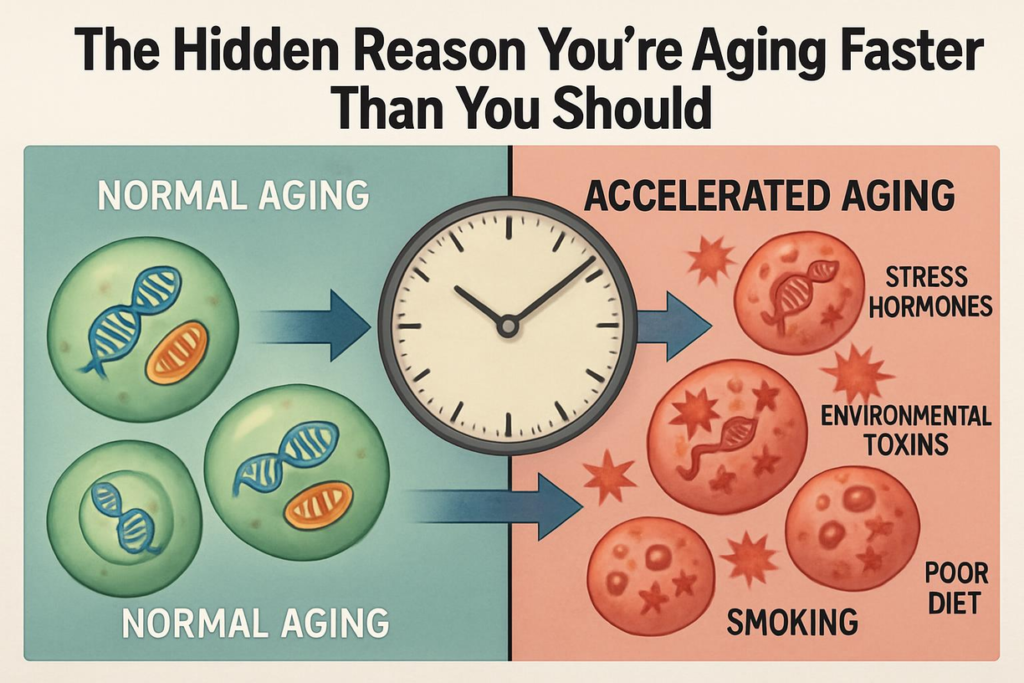If you, or someone you love, is grappling with an autoimmune disease, it’s natural to explore every possible avenue to manage or potentially reverse its effects. This article aims to shed light on one of the emerging treatment options – stem cell therapy.
Autoimmune diseases are conditions where the body’s own immune system mistakenly attacks its cells, leading to a range of health problems. These can be as diverse as rheumatoid arthritis, where the immune system targets the joints, to conditions like lupus, which can affect multiple parts of the body. Current treatments focus on managing symptoms and slowing disease progression, but they often come with side effects and don’t always stop the disease entirely.
Stem cell therapy, on the other hand, has sparked interest and hope because of its potential to repair damaged tissues and organs. It’s a field of medicine that’s relatively new and still evolving, but initial research and clinical trials show promise.
So, can stem cell therapy help with your autoimmune disease? This article will take you through what autoimmune diseases are, what stem cell therapy is, and how it might be used to treat autoimmune diseases. We’ll look at the science, the benefits and risks, and some of the latest research in this area.
Remember, while this article is designed to inform, it’s always important to discuss any potential treatment with your healthcare provider. Let’s start our journey into the world of stem cells and see where science may take us.
Understanding Autoimmune Diseases
Definition and Examples of Autoimmune Diseases
Autoimmune diseases are a group of disorders where your immune system mistakenly attacks your own body’s cells. Your immune system’s role is to protect you from harmful substances like bacteria, viruses, and cancer cells, but in the case of autoimmune diseases, it fails to distinguish between these harmful substances and healthy cells.
There are over 80 types of autoimmune diseases, each affecting different parts of the body. Some are organ-specific, such as Type 1 diabetes where the immune system targets the pancreas, and some are systemic, affecting the whole body, like lupus. Other examples include rheumatoid arthritis, multiple sclerosis, psoriasis, and inflammatory bowel disease.
Causes and Symptoms of Autoimmune Diseases
The exact cause of autoimmune diseases remains unclear. However, they are believed to be triggered by a combination of genetic, environmental, and hormonal factors. Some autoimmune diseases tend to run in families, suggesting a genetic component, while others may be triggered by infections or exposure to certain chemicals.
Symptoms can vary widely depending on the type and severity of the autoimmune disease but often include fatigue, joint pain and swelling, skin problems, abdominal pain or digestive issues, swollen glands, and problems concentrating. It’s also common for symptoms to come and go, with periods of remission interspersed with flare-ups.
Current Standard Treatments for Autoimmune Diseases
Treatment for autoimmune diseases typically focuses on reducing immune system activity, managing symptoms, and maintaining the body’s ability to fight disease. This often involves medications such as nonsteroidal anti-inflammatory drugs (NSAIDs), immunosuppressants, hormone replacement therapy, and physical therapy. While these treatments can be effective, they often come with side effects and don’t always prevent disease progression. In addition, they generally need to be continued long-term, which can also be challenging for many patients.
Exploring Stem Cell Therapy
Definition and Explanation of Stem Cell Therapy
Stem cell therapy is an innovative field of medicine that uses stem cells to repair damaged tissues and organs. Stem cells are unique because they have the ability to develop into many different types of cells in the body, such as muscle cells, blood cells, or nerve cells. This gives them the potential to heal or replace tissues damaged by disease or injury.
Types of Stem Cells Used in Therapy
There are three main types of stem cells used in therapy:
- Embryonic Stem Cells: These are derived from embryos. They are pluripotent, meaning they can turn into almost any type of cell in the body. However, their use is often controversial due to ethical concerns.
- Adult Stem Cells: Also known as somatic stem cells, these are found in small numbers in most adult tissues, like bone marrow or fat. While they can’t turn into as many types of cells as embryonic stem cells, they are often used in therapy because they are less controversial and can be taken directly from the patient, reducing the risk of immune rejection.
- Induced Pluripotent Stem Cells (iPSCs): These are adult cells that have been genetically reprogrammed to act like embryonic stem cells. They offer the potential to create a variety of cell types for therapy while avoiding some of the ethical issues associated with embryonic stem cells.
How Stem Cell Therapy Works
The process of stem cell therapy generally involves three steps:
- Collection: The stem cells are harvested from the patient’s body (usually from bone marrow or fat tissue) or from a donor source.
- Processing: The collected stem cells are then processed in a lab, where they may be purified, multiplied, or even modified in some cases to perform specific functions.
- Injection: The processed stem cells are then injected back into the patient’s body, where they can potentially repair damaged tissues or stimulate the body’s own repair mechanisms.
While the process may seem straightforward, it’s important to remember that stem cell therapy is a complex field with many ongoing research studies to understand and refine the best ways to use stem cells for different diseases, including autoimmune disorders.
Stem Cell Therapy and Autoimmune Diseases
Understanding the Potential of Stem Cell Therapy for Autoimmune Diseases
The potential of stem cell therapy for autoimmune diseases lies in the unique properties of stem cells. Because these cells have the ability to develop into various types of cells and have a degree of ‘immunomodulatory’ properties, meaning they can modulate or regulate the immune system, they could potentially be used to repair damaged tissues and reset the immune system, halting the destructive cycle of an autoimmune response.
Exploring the Scientific Research behind Stem Cell Therapy for Autoimmune Diseases
Several preclinical and clinical studies have been conducted to investigate the effectiveness of stem cell therapy for autoimmune diseases. For instance, hematopoietic stem cell transplantation (HSCT) has shown promise in treating severe cases of multiple sclerosis (MS) and systemic lupus erythematosus (SLE), among others.
In MS, some studies have shown that HSCT can ‘reboot’ the immune system and stop the progression of the disease, even leading to sustained periods of remission. Similar results have been seen in some patients with SLE.
It’s important to note, however, that while the results are promising, the number of patients treated so far is relatively small, and the studies often involve patients with severe disease who haven’t responded to other treatments.
Real-World Examples and Case Studies
Across the globe, several real-world examples and case studies illustrate the potential benefits of stem cell therapy for autoimmune diseases. For instance, there are numerous reports of individuals experiencing significant improvements in their symptoms and quality of life following stem cell treatment.
However, it’s crucial to remember that everyone’s experience is different, and what works for one person may not work for another. Furthermore, these case studies often involve specific types of stem cell therapy, such as HSCT, which may not be suitable or effective for all types of autoimmune diseases. This is why ongoing research is so important.
Benefits and Risks of Stem Cell Therapy for Autoimmune Diseases
Potential Benefits of Stem Cell Therapy for Autoimmune Diseases
The potential benefits of stem cell therapy for autoimmune diseases could be transformative. Here are a few key points:
- Disease Modification: Unlike many current treatments which focus on managing symptoms, stem cell therapy has the potential to modify the disease itself by ‘resetting’ the immune system.
- Reduced Reliance on Medications: If successful, stem cell therapy could reduce or even eliminate the need for long-term medication, which often comes with significant side effects.
- Improved Quality of Life: By potentially halting disease progression and repairing damaged tissues, stem cell therapy could significantly improve patients’ quality of life.
Possible Risks and Side Effects
As with any medical procedure, stem cell therapy comes with its own set of risks and side effects, including:
- Procedure-Related Risks: Collecting stem cells typically involves invasive procedures, like bone marrow extraction, which can be painful and come with risks of infection and bleeding.
- Immune Reaction: If donor stem cells are used, there’s a risk of graft-versus-host disease (GVHD), where the donor cells attack the patient’s body.
- Uncertain Long-Term Effects: The long-term effects of stem cell therapy are still largely unknown, given the novelty of this treatment. There might be unforeseen complications years down the line.
Comparing Stem Cell Therapy with Standard Treatments
Stem cell therapy could offer an alternative or adjunct to standard treatments for autoimmune diseases. However, it’s important to understand that at this stage, stem cell therapy is generally considered for severe cases where standard treatments have failed.
Furthermore, the availability, cost, and coverage of stem cell therapy can vary significantly, and it may not be an accessible or affordable option for everyone. As such, a thorough discussion with your healthcare provider is crucial to make an informed decision.
FAQs about Stem Cell Therapy for Autoimmune Diseases
- What is stem cell therapy? Stem cell therapy is a type of treatment that uses stem cells to repair damaged tissues and organs. Stem cells are unique because they can develop into many different types of cells in the body.
- How does stem cell therapy work? In the context of autoimmune diseases, stem cell therapy could work by replacing damaged cells and potentially ‘resetting’ the immune system, thus halting the destructive cycle of an autoimmune response.
- Is stem cell therapy a cure for autoimmune diseases? While stem cell therapy shows promise, it’s important to remember that results can vary significantly, and it’s not guaranteed to work for everyone. Currently, it’s not considered a ‘cure’, but rather a potential treatment option, particularly for severe cases where other treatments have been ineffective.
- What are the risks of stem cell therapy? Risks of stem cell therapy can include procedure-related risks like infection and bleeding, immune reactions (particularly if donor cells are used), and uncertain long-term effects.
- Is stem cell therapy approved for autoimmune diseases? The approval of stem cell therapy depends on the specific autoimmune disease, the type of stem cell therapy, and the country’s regulatory body. For instance, in some cases, hematopoietic stem cell transplantation (HSCT) is approved for certain autoimmune diseases.
- Will my insurance cover stem cell therapy? Coverage for stem cell therapy can vary widely depending on your insurance provider, your specific policy, and the particular type of stem cell therapy. It’s crucial to discuss this with both your healthcare provider and your insurance company.
Conclusion
Navigating the landscape of autoimmune diseases can be a daunting task, with many potential paths for treatment to consider. One path that is garnering increased interest is that of stem cell therapy. As we’ve explored in this article, the potential benefits of this innovative form of treatment could be significant, from modifying the course of the disease to improving the overall quality of life.
However, as with any medical treatment, it’s important to weigh these potential benefits against the possible risks and side effects. The field of stem cell therapy is still evolving, and while the results to date are promising, more research is needed to fully understand the long-term effects and to optimize the use of stem cells in treating various autoimmune diseases.
If you or a loved one are considering stem cell therapy, it’s essential to have a thorough discussion with your healthcare provider, who can guide you based on the most recent research and your personal health situation.
As we continue to learn more about the incredible potential of stem cells, we can remain hopeful about the future of autoimmune disease treatment. After all, in the world of medicine, today’s innovation could become tomorrow’s cure.



